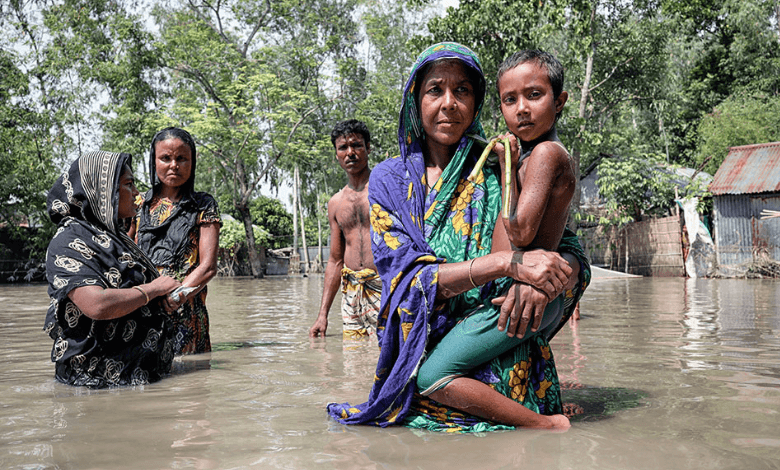‘Climate Change Disproportionately Affects Women And Is Not Gender Neutral’

Of the 119 countries that have published national plans to tackle the climate crisis, only 38 include access to sexual and reproductive health services and just 15 make any reference to violence against women, the UN has warned.
The report published by the UN Population Fund (UNFPA) and Queen Mary University of London is the first to examine whether climate plans refer to contraception, maternal and newborn health. It calls on more countries to recognise the disproportionate impact of climate crisis.
“We know climate change disproportionately affects women and is not gender neutral so there is a need to address those gaps and impacts,” Angela Baschieri, an adviser on population and development for UNFPA and one of the report’s authors, said.
Extreme Heat Linked To Complications During Pregnancy
Baschieri noted “there is more work that could be done.” The climate crisis has been exacerbating existing inequalities. Take east and southern Africa.
Tropical cyclones have damaged health facilities, disturbing access to maternal health services and helping spread waterborne diseases.
Extreme heat has been linked to poorer maternal health and complications during pregnancy, such as gestational diabetes.
Meanwhile, rising temperatures have been associated with triggering earlier deliveries and a rise in stillbirths.
The report said hurricanes and droughts increase the threats of child marriage and gender-based violence, as families unable to support daughters seek to marry them off. In Bangladesh, marriages of girls aged 11 to 14 increased by half in years with a heatwave lasting a month.
Climate Policies Must Recognize The Differential Impact On Women
The report also highlighted the countries that have been taking action. Nine countries have included policies or interventions to address gender-based violence. Paraguay, Seychelles and Benin have specified the need to build climate-resilient health systems.
ALSO READ: Icon: Company Claims Its 3D-Printed Homes Can Better Withstand Extreme Weather
Only Dominica in the Caribbean has mentioned the need for contraception. Meanwhile, Vietnam is the only country to acknowledge crisis critically support child marriage as families seek to reduce their economic burden by marrying off their girls.
A country’s climate policy must recognise the differential impact on women. Authorities must ensure substantially reduced disruptions to family planning services during times of crises. The raging “climate emergency is setting us back on the fight to gender equality,” said Baschieri.



